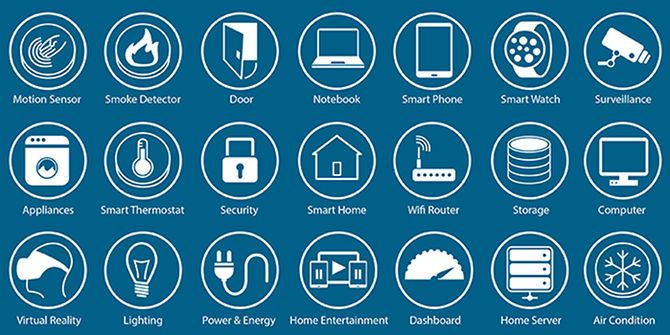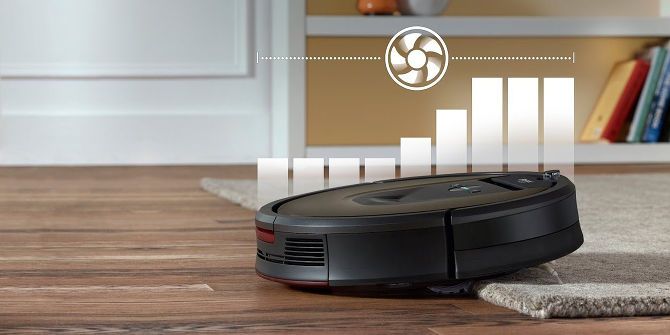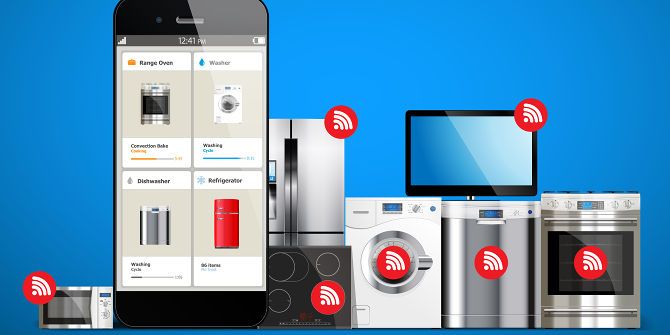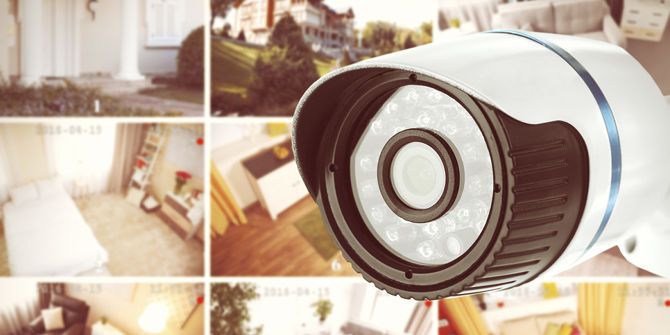A smart product is any gadget or device that has built-in internet connectivity. When you amass a number of these to improve your day-to-day living conditions, you can then claim to have a smart home (some prefer to call it home automation).
Yet even though the trend in smart homes is growing, is it a trend that you should join? A lot of these products seem cool and nifty at first glance, but there are issues and downsides that you should be aware of -- problems that might turn you off from the whole concept altogether.
1. Smart Products Aren't Always Convenient...
The ultimate goal of the smart home revolution, and technology as a whole, is to make your life easier. Ideally, smart homes will eventually allow you to live at home without having to worry about cooking, making coffee, doing laundry, or wasting energy. Everything will be automated.
But we're far from that picturesque future.
Take lighting, for example. You can install a smart lighting set that automatically turns on when you enter a room and turns off when you leave -- but there's a lot of initial setup that needs to be done to get it working. Is it worth the trouble when you can just flick a light switch instead?
Indeed, learning curves are a big problem for smart products, mainly because each product is uniquely different. Learning how to operate your Nest thermostat (UK) doesn't ease the learning process of setting up a smart door lock or a smart garden sprinkler.
Not to mention all of the clutter. Every smart home devices usually comes with its own special app that you need to use to control said devices. If you buy 10 different gadgets, that's 10 apps you need to juggle around. And what about physical clutter? Do you really need an Amazon Echo Dot in every room?
And to add salt to the wound, most smart devices have horrible user interfaces. It's one of the reasons why smart TVs crashed and burned -- if the product doesn't feel good to use, or if it isn't easy to operate, then you're probably not going to use it and it's just going to end up collecting dust.
2. ...And the Convenience Isn't Always Worth It
Now, to be fair, some smart products actually do deliver on their promises of usefulness. The Nest thermostat is one such example, which not only simplifies the operation of your home climate control, but also helps you save money in the process.
That being said, many smart products are barely any better than their "dumb" equivalents. I wouldn't go as far as to say that smart devices are just gimmicks or anything like that, but I will say that most smart products are priced too expensively for what they offer.
Robot vacuums are a good example: a modern Roomba model currently costs anywhere from $300 to $1,000, whereas you can grab a traditional vacuum cleaner for $30 to $100. Is the automation worth a 10x increase in price? We don't think so.
Truth is, many smart products try to "do it all" and end up being subpar at all of it. Why pay hundreds more for a "smart" refrigerator that can browse the web when you already have a phone, tablet, and computer that can do it more efficiently? Do you need a "smart" smoke detector when a "dumb" one is just as effective?
Overall, if you're smart about what you purchase, then a smart home absolutely won't kill your wallet. But you really have to be careful when weighing the value proposition of a smartened device. Sometimes the extra benefits aren't worth it.
3. Smart Products Are Prone to Abandonment
Every so often, I'll turn on my smart TV and get a message that "App X will be discontinued on...", indicating that some company no longer cares enough to support their smart TV app. When I first got my smart TV years ago, it had hundreds of apps. Now it only has dozens.
The smart home industry is still in its infancy, which means things are still rapidly changing -- and as the landscape changes, some apps and devices will inevitably be left behind.
We've seen dozens of smart product ideas come and go on Kickstarter, most of which never saw the light of day. And of the smart devices that did see release, plenty end up being discontinued. (The Staples Connect Hub and the Amazon Echo Dot [UK] both come to mind.)
Obsolescence is a notable problem in the tech industry, but noticeably worse in the smart home sphere. Not that these companies are practicing planned obsolescence -- at least not yet -- but you never know when a company may shut down its servers, and that's always a big risk.
For example, one of the benefits of getting a smart security camera is that the footage is automatically uploaded to manufacturer-provided cloud storage. If that service is discontinued, you lose out on one of its biggest features -- and you might even lose all of the footage you've kept stored.
You can somewhat mitigate this risk by sticking to trusted smart home brands only, but even then the risk is big enough that you can't just ignore it.
4. Security and Privacy Concerns Are Real
For many, this may just be the straw that breaks the camel's back. How would you feel if the government could listen in on your private conversations with your Amazon Echo's microphone? Or what if they could watch you through your smart TV's camera?
Or worse yet, what about hackers?
These fears are common when it comes to internet-connected devices, but what's really frightening is that these fears aren't just paranoia. They have roots in reality. Anything that is hooked up to the internet at large can potentially be eavesdropped or compromised.
Some of the risks aren't so obvious. Setting up security cameras throughout your home may improve your sense of safety and well-being, but if hackers gain access to those cameras, they'll know exactly when you're home and when you aren't, giving them the perfect opportunity to burglarize.
And if you think the NSA isn't listening in, you may want to think again. As the world moves towards an "internet of things", these kinds of privacy breaches are only going to become more common. Not to mention the other security risks associated with it!
How Do You Feel About Smart Homes?
Nobody can tell you what to do -- the decision is yours alone to make. All we can do is provide you with as much information as possible so your decision is an informed one.
Are we excited about smart homes? You bet. Do we want to see where all of this eventually leads? Absolutely. But are we going to practice skepticism and caution? Yes, yes, yes. Weigh the scales and tell us where you land.
Are you on board the smart home hype-train? Or have you recently jumped off the bandwagon? Where do you think smart products will eventually lead us? Share your thoughts in the comments!
Image Credits: gualtiero boffi/Shutterstock





